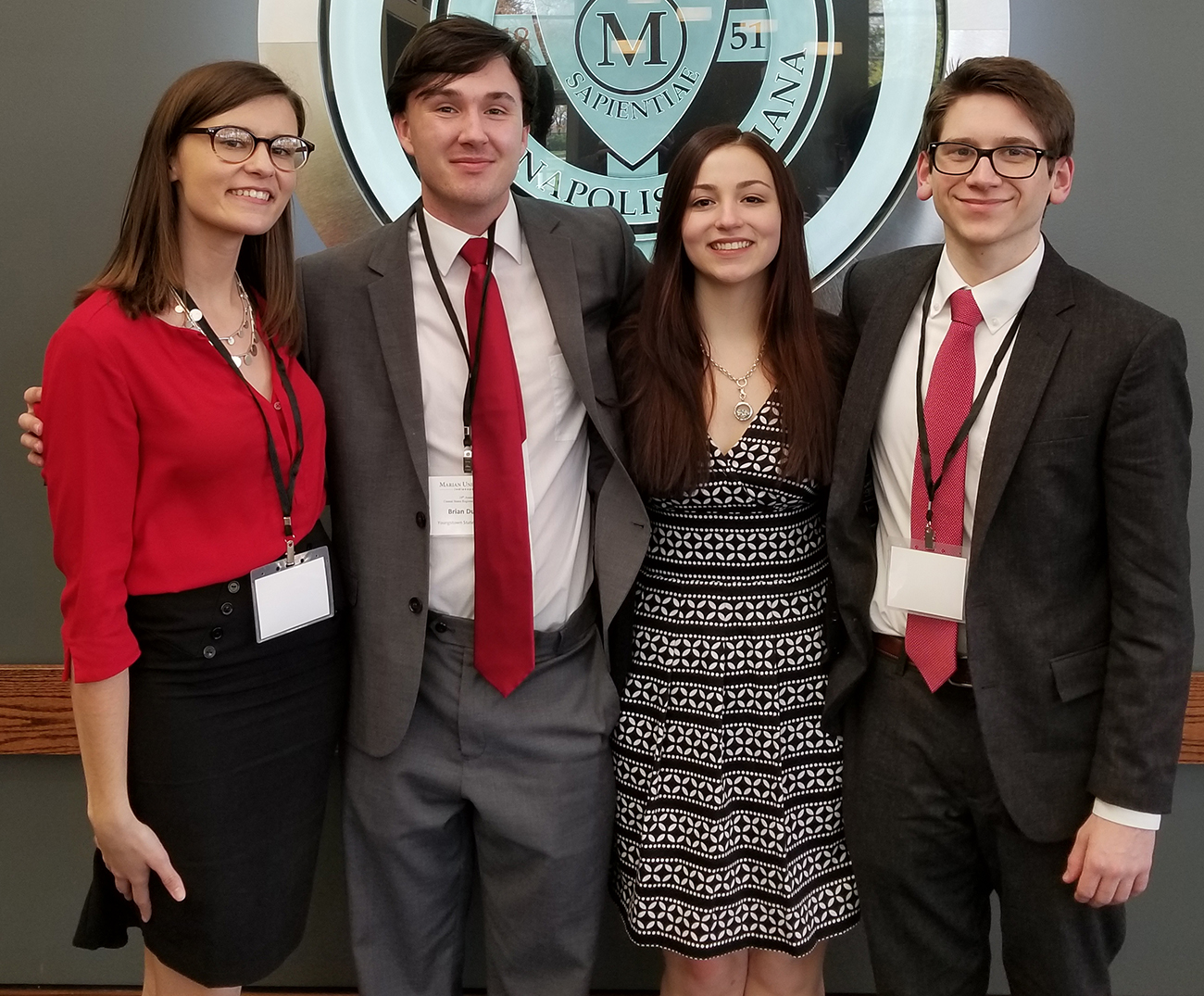YSU Ethics Bowl team gets another shot at national title

For the third consecutive year, Youngstown State University’s Ethics Bowl team is headed to the national finals after again placing first in the regional competition in Indianapolis.
The YSU contingent came in first among 32 teams from 20 universities and colleges and will now advance to the national contest March 3 and 4 in Chicago, hosted by the Association for Practical and Professional Ethics. At the national finals, YSU placed second in each of the last two years.
Team members are: Lindsay Heldreth, Philosophy major, Honors College member, senior, Canfield; Samantha Fritz, Philosophy and Political Science majors, Honors College member, sophomore, Canfield; Jake Tomory, Philosophy and Political Science majors, Honors College member, sophomore, Canfield; and Brian Duricy, Economics and Math majors, senior, Howland.
The team’s coaches include Alan Tomhave, associate professor of Philosophy; Mark Vopat, professor of Philosophy; and Jacob Schriner-Briggs, YSU graduate and former Ethics Bowl team member.
“We will do everything we can to bring the national title home to Youngstown, but regardless as to the outcome, we strive to make our university proud to claim us,” Heldreth said. “We’re looking forward to another shot at the national championship.”
Heldreth emphasized the important role that coaches and other faculty volunteers have played in the team’s success.
Other faculty volunteers include Sharon Stringer, Psychology; Michael Jerryson, Religious Studies; Kris Blair, CLASS Dean; Bruce Waller, Philosophy; Tod Porter, Economics; Gabriel Palmer-Fernandez, Religious Studies; Amy Flick, English and CLASS Dean’s Office; Michael Pontikos, Marketing; Homer Warren, Marketing (Retired); and Joy Christiansen-Erb, Art. Past volunteers have included Loren Lease, Anthropology; Darrel Wallace, Engineering; A.J. Sumell, Economics; Adam Fuller, Politics and International Relations; Linette Stratford, Philosophy (adjunct); and Jeff Limbian, Philosophy (adjunct).
The competitions focus on a set of 15 cases. Teams have slightly less than two months to study and research the cases. At the competition, teams do not know which of the 15 cases they will have to address, nor do they know the question that they will have to answer. Further, they are not allowed any notes on the research that they have done on any of the cases. Once a case is revealed and the question is asked, the team has either one or two minutes (depending on whether it is a regional or national Ethics Bowl) to prepare a presentation. The presentation must offer a moral argument to answer the question and consider potential objections to the team’s position. A second team then provides a commentary on the first team’s argument, with the original team then getting a chance to respond. Finally, there are three judges who get to ask questions. At this point, a new case is presented and the two teams reverse roles. This process would constitute one match, with an entire Ethics Bowl competition being composed of numerous matches.
